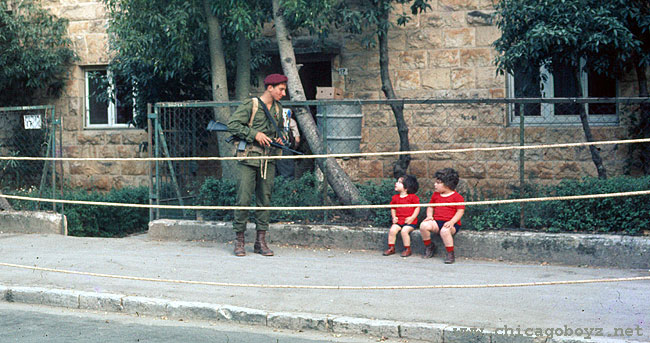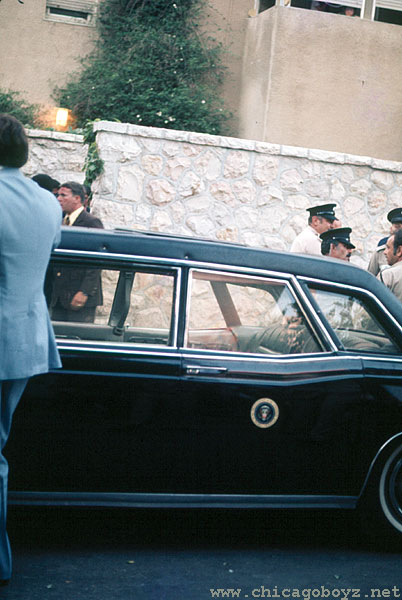The Swedes are throwing a hissy fit because the Israeli Ambassador, visiting a museum exhibit associated with a Swedish government-sponsored conference on genocide, took offense at a display of offensive “art” and literally pulled out its plug.
(The Israeli government says that the Swedes promised not to link the conference to the Arab-Israeli conflict — which, BTW, Reuters mislabels “the Middle East conflict.”)
Meanwhile, the “artist” — a lefty Israeli “peace” activist — said, essentially: Hey, what are you so upset about? It’s just an exhibit, we were trying to raise consciousness about the Israeli-Palestinian conflict, what about freedom of expression, etc., etc. And a representative of the Swedish government expressed outrage that the ambassador had the temerity to damage sacred art, etc., etc.
To the “artist” and the Swedish government, I say: fuck you. Yeah, the Israeli ambassador lost it, but you provoked him. He took the bait and now you get to tut-tut about his emotional reaction and make sanctimonious statements about “art.”
The message I get is that the Swedish government cares more about art exhibits and moral posturing than it does about the lives of Jews. Would the Swedish government tolerate, at an official conference, an “art exhibit” portraying Hitler sailing in a lake of Jewish blood? More to the point, would the Swedes tolerate an exhibit showing the Jewish mass murderer Baruch Goldstein sailing in a lake of Arab blood? Would they tolerate an exhibit that could be interpreted as insulting to Muslims or Arabs? To ask this question is to answer it.
Maybe I, like the Israeli ambassador, am overreacting, but my impression is that the ambassador isn’t the problem here.
UPDATE: I am happy to learn that the Israeli government is supporting the ambassador:
Sharon said he called Mazel Saturday night and thanked him for his stand against rising anti-Semitism. “We are witnessing a rise in anti-Semitism, and will increase our efforts to fight the phenomenon,” he reportedly told the cabinet.
Good. Let the bastards worry about offending Jews, for a change.
(Link: Yehudit)
UPDATE 2: Bjørn Stærk has a contrary view.


